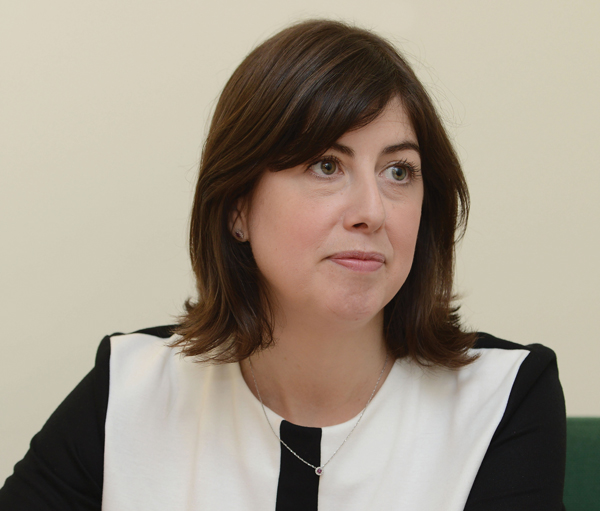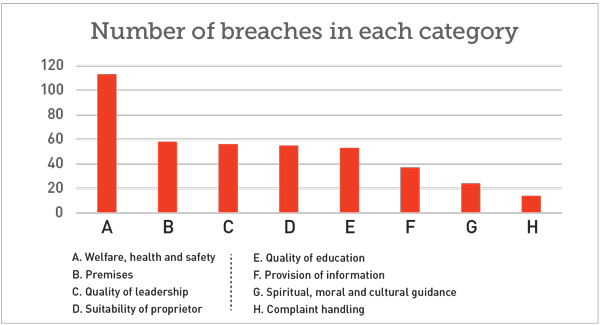Private schools want to offer up to 10,000 places to low-income families every year – as long as the government provides £55 million to fund the scheme.
The Independent Schools Council (ISC) has this morning announced proposals to create new places for families unable to afford private school fees.
The ISC wants the government to fund the places by paying a per pupil fee that would be “no more than the cost of a state school place” – on average £5,550, meaning this could amount to more than £55 million.
The proposals are expected to cost around £80 million overall. The ISC told the BBC that private schools would contribute the remaining, which could be around £25 million.
It follows calls from the government for the independent sector to step up and provide more support to their state school counterparts – or face losing their charitable status.
We don’t see ourselves as hero knights
ISC chairman Barnaby Lenon, said: “The proposals we are putting forward go considerably further than some of the ideas the green paper suggested and by helping create more good school places, both in state and independent schools, we would be helping to expand real social mobility in this country.”
The announcement has been criticised by some parts of the education community, but Barnaby told Schools Week: “We don’t see ourselves as hero knights coming in to save state schools – most are doing well and don’t need saving.”
The ISC has pledged to use the “strengths and expertise” of its schools to help co-sponsor new free schools. Lenon added: “There is a justifiable humility in our response. Independent schools are very nervous about setting up state schools.”
He said the model has to be for private schools to work in consortiums with state schools “that have more expertise than us, and give expertise in where we are experts.”
He gave examples of teaching A-levels, music and sport.

But figures released this morning by former shadow education secretary Lucy Powell MP (pictured right) question the ability of private schools to raise standards in the state sector.
Figures show more than a third of the 11 academies run by a private school sponsor are rated as requires improvement or inadequate.
Powell said: “There are thousands of excellent state schools that are turning around failing schools. Ministers should look to these rather than fixating on independent and grammar schools as the silver bullets to school improvement.
“They are clearly not, as these figures show.”
Lenon told Schools Week that more than half of those schools were in a “very bad position” when they were taken over and it was “unfair” to judge the small number of schools on the basis of only 18 months of improvement work.
Schools Week has also previously revealed substantial failings at some of the country’s most prestigious independent schools.
We reported that more than 110 private schools had been handed statutory improvement notices by the government – with schools breaking regulations 410 times.
Powell added: “It’s time for ministers to drop their gimmicks and focus on what really matters, enough excellent teachers in the classroom and proper resources for schools, things they are singularly failing to deliver.”
The ISC said it would also further expand collaborative work in the state sector – including sharing teaching, careers advice and facilities.

An ISC spokesperson said partnerships would focus on the six areas identified as social mobility cold spots by the government.
But Sir Michael Wilshaw, Ofsted’s chief inspector, told the BBC the proposal did not go far enough.
“I think they can do better than that and if I was government I would be asking them to do more as a quid pro quo for their tax privileges.”
A Department for Education spokesperson said: “Our proposals are about creating more choice, with more good school places for more parents in more parts of the country.
“We want do this by lifting the ban on new grammars, and harnessing the resources and expertise of universities, faith schools and independent schools.”








Subsidising places for pupils in private schools just reinforces the idea that you can only get a decent education in the UK if you go private. The government are keen to learn the lessons of PISA. No other country would contemplate accepting this offer as a way of improving educational provision and neither should the UK.
Imagine you are wealthy and private schools did not exist. The government says that you can send your child to a decent school on the basis of a lottery decided by a few unaccountable individuals. You would be up in arms.
We need a state education system that caters for all students, not gimmicks where the rich have decent schools and throw a few crumbs to the plebs.
So many things wrong with this article which one again exposes the inherent bias in the approach of the ‘journalist’ and the pandering to sensationalism.
1) The private schools don’t want “funding” as the term would be understood in the maintained sector. They are saying that if (note that’s IF) the Government wanted to send 10,000 children from low-income families to private schools then the schools will pay £25 million and the Government would pay the rest. Essentially they’re giving the Government a 31% discount if the Government wants it.
2) Then you’ve got the wonderfully contradicting way the article starts by referring to calls for “the independent sector to step up and provide more support to their state school counterparts” and then moves on to smugly pointing out how some of the academies sponsored by private schools aren’t doing so well and quoting Lucy Powell’s dismissal of them as not being up to the job of turning round failing schools.
3. In a half-hearted attempt to provide a degree of balance, the article quotes the ISC’s claims about how the academies sponsored by private schools were in a bad position when they were taken over. Why not actually do some genuine journalism and look into this point – what a wasted opportunity to get beyond the spin of a Labour MP and the ISC and actually shine a light on the facts.
This whole article smacks of someone just gathering quotes from people with an inherent interest in putting their own spin on what they’re saying, and not using a critical unbiased eye to question what the real position is.
And why not address the central issue – it seems clear private schools should do more to justify their existence and they seem to understand that. They’ve got involved in sponsoring academies and are vilified for it. They’ve offered to subsidise places for low-income children and are vilified for it. So go on, what would you like them to do ???